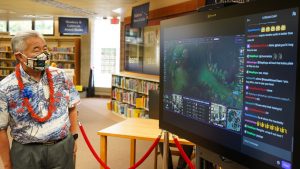Pandemic lessons: Making an innovation economy a reality
Posted on Jul 25, 2022 in Capitol Connection, Featured, Main“It took COVID-19 to teach us to embrace change or perish. Our children can have a future here if we can make change happen.” — Governor David Ige, July 2021
The state took a body blow from COVID-19 but now is surpassing all economic forecasts — with more funds available for essential programs and services and major investments in education, housing and other long-standing needs. So where do we go from here? The past two years have been a chance to take stock of our lives, jobs, businesses, and the future we want for Hawai‘i. The result has been a sea change in daily life and a “new normal.” Restaurants have pivoted to take-out and businesses to e-commerce. People started working from home . . . and liking it. Hawai‘i’s visitor industry is moving to a more sustainable model, not just racking up more tourism numbers. The pandemic accelerated what the governor and his team had already set in motion: Developing local talent in a more tech-savvy economy to fill jobs and compete in global markets. “The next great economic transition for Hawai‘i will be driven by innovation and technology,” said the governor. “In the past, our geographic isolation has been the greatest limitation. But today, technology is changing all of that.”
At an event last year at the Entrepreneurs Sandbox, Paul Yonamine, executive chairman of Central Pacific Bank, referred to a report that found nearly half of our workforce has difficulty making ends meet. However, he noted that tech-enabled workers in Hawai‘i with the right training could make 50 percent more in wages than non-tech workers . “We’re talking about people who know how to use technology — not only coders and programmers — and get paid more because they add more value to an organization.” DBEDT director Mike McCartney said COVID-19 spurred the move to a more digital economy out of necessity. “We had to get the whole visitor industry together to mandate the first-in-the-nation self-quarantine and Safe Travels program. The governor held firm that if people don’t have their health, you don’t have an economy,” he said.

